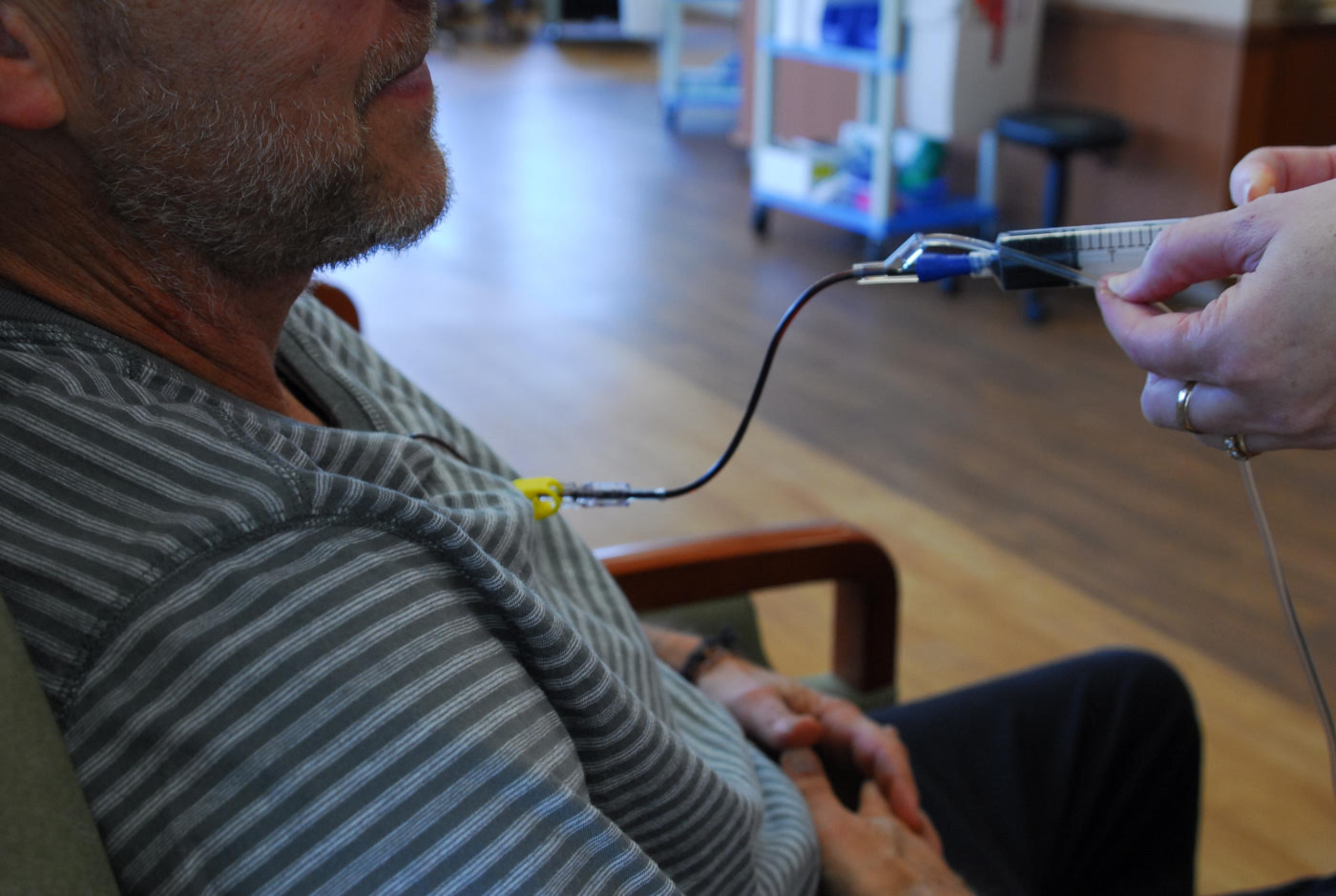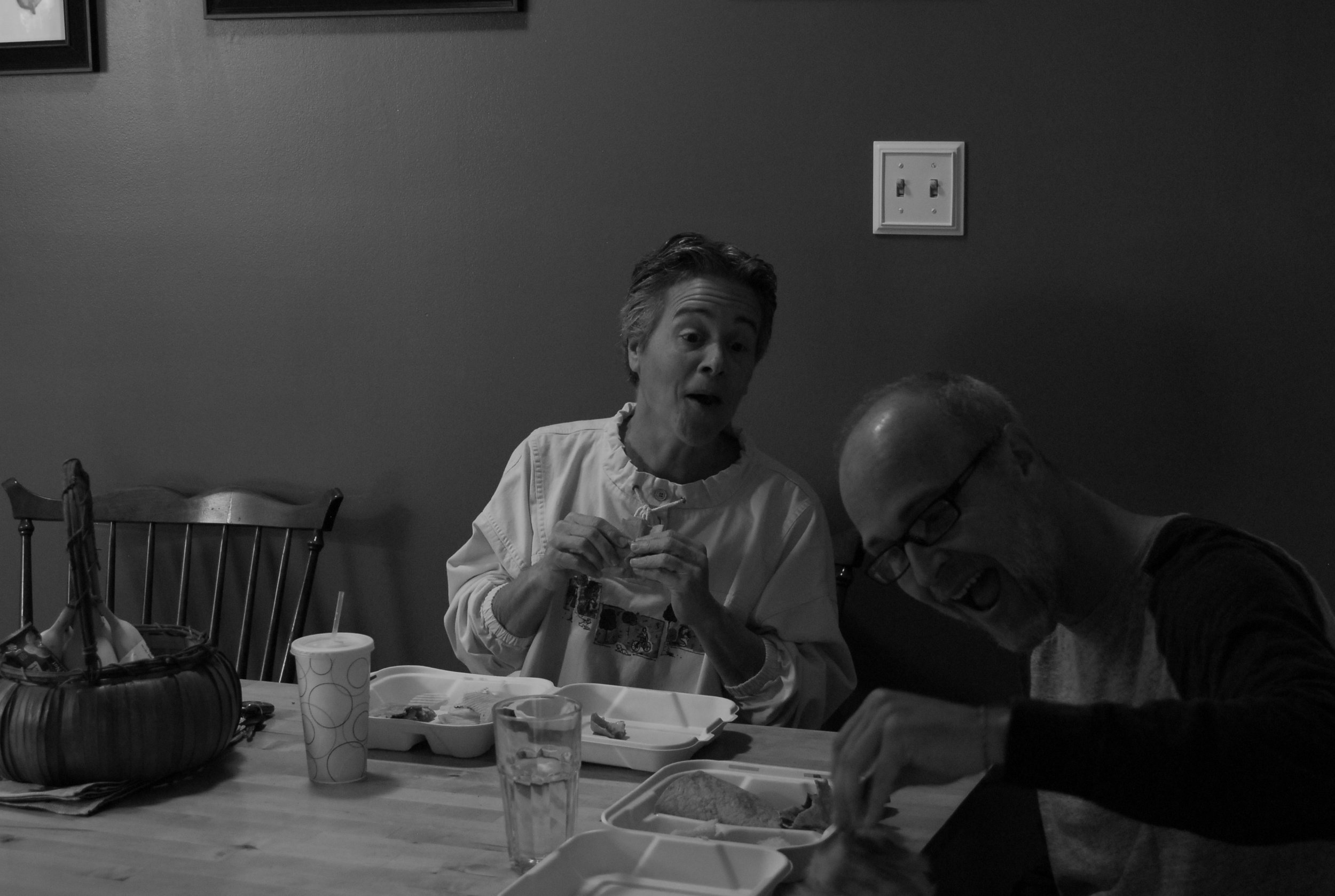An Interview with Lori Nonnemaker of the BUCK Cancer Foundation
Many cancer patients look to alternative or complementary medicine for additional support at some point during their cancer treatment. Often, the process of finding this information is overwhelming and it’s up to the patient to sort through all of the available options. I recently had the pleasure of chatting with Lori Nonnemaker who started the BUCK Cancer Foundation, an organization that works tirelessly to expand knowledge about integrative medicine. Lori’s bother fought cancer and she has firsthand experience as a caretaker. We talked about her brother’s story, alternative medicine, and the exciting things BUCK Cancer Foundation has in store.
Tell me a little about your history, about Buck, and why you started the BUCK Cancer Foundation.
I started the BUCK Cancer Foundation in 2014 after my brother Buck passed away from cancer.
I often tell the story of when he and I were living together and I would come home at night through the back door, where I could see his feet on the edge of the couch in the living room. Having his feet up would help him with his pain.
His treatments were solely conventional until the last four months when we were exposed to some natural and holistic options. We found a naturopath who suggested two things: modify his diet and increase his hydration to 100 ounces per day. The results were undeniable. Within three days, he went from being very lethargic and dull to standing upright, speaking strongly, and getting his personality back. His naturopath also suggested acupuncture to complement his conventional pain medication and, after three weeks of acupuncture treatments, I didn’t see his feet on the edge of the couch anymore. He was doing laundry and making me dinner.
Unfortunately, it was a little too late for my brother. But, when I looked around for information about complementary care, I noticed the two, distinct treatment teams: conventional and alternative medicine. I didn’t understand why these treatments weren’t working together to complement and provide comfort to patients dealing with a lot of pain. So, I created BUCK to bridge the knowledge gap.
I don’t know if my brother is happy with me or not, but I took his name and I turned it into an acronym for our foundation, Bridging and Uniting Cancer Knowledge. This is the mission of the BUCK Cancer Foundation. We know that there are great organizations out there looking for a cure, but our focus is providing the highest level of comfort to cancer patients. We want to integrate the treatment teams from the point of diagnosis. Want to make integrative medicine the standard for cancer care.
Buck’s feet resting in front of the TV
What are the goals of the foundation?
First, we want to make integrative medicine the standard for cancer treatment. But, to get there, the research must be funded. Medical research is necessary to ensure the holistic treatments we are introducing to conventional treatment are actually complementary and that doctors understand the benefits and the risks. To achieve this goal, we have established a medical research grant program.
We are also focused on students who are currently enrolled in medical school and are interested in holistic care. To assist them, we offer the Pay A BUCK Forward educational grant. These are tuition assistance grants for students pursuing a degree in integrative medicine, acupuncture, nutrition, reiki, yoga, or other complementary treatments. Once the students have graduated and are fully employed, they will pay this grant back twice to help another student. For example, if a student receives a $5,000 grant, they will pay $10,000 back to the foundation. With this technique, they are actually funding two future grants. Students get money when they need it, and provide for future students when they have it.
Buck receiving chemotherapy
Are there any current projects with the foundation that you’re particularly excited about?
We have been very blessed with amazing support for our organization, so we were able to hand out two more Pay a Buck Forward grants recently. These grants went to two students, one studying acupuncture at the WON Institute in Glenside and the other furthering their Integrative Medicine studies at George Washington University.
Additionally, our board recently approved a Tai Chi study at Jefferson University Hospital in Philadelphia that will begin in September. This study will further the research into Tai Chi, which has been shown to have benefits for Breast Cancer survivors dealing with joint pain associated with post chemotherapy. This is our first time partnering with Jefferson and we are very excited!
That’s really exciting. Is there any way to enter the study for anyone who is interested?
I believe that Jefferson is starting off with the current patients and breast cancer survivors receiving treatment at their hospital. After that, they will branch out further to those in the Main Line Health Organization, and then perhaps broader. I am unsure of the exact process for other patients that might be interested in being part of the study, but if anyone is curious, they can always reach out to me via email (info@buckcancerfoundation.org) and I’ll find out who to contact.
Chemotherapy bag
In the coming years, what space do you envision the BUCK Cancer Foundation occupying in the healthcare information landscape?
My vision for the foundation is to make information about integrative cancer care readily available. And, luckily, this fits perfectly with the desire for instant, high-quality information we have today. First, I crafted a website where people could find relevant information in one location. I chose to do this because when I was researching different avenues of treatment for my brother, I found it difficult to tell what was reputable and what was not. I needed something that I could rely on for good, nonconflicting information. Our website provides a portal with over 2,500 resource links with a vast amount of topics regarding cancer care and treatments, as well as complementary methods. These resource links have been vetted by a group of healthcare professionals to ensure accuracy. Having this website has allowed us to reach people nationally and internationally.
What role does “alternative” medicine play in your life?
After the naturopath told my brother to change his diet and increase his hydration, I did the same. I continue to avoid processed foods, eat more fruits and vegetables, and try to drink 90-100 ounces of water a day. I also introduced supplements like slippery elm tea, which helps calm the colon. Buck was diagnosed with colorectal cancer and it was advised that close family members should get screened. So, I did that too. I felt like I should be proactive about these matters and aware of necessary screenings so I could either avoid health issues or detect them early. My first screenings showed polyps, but as I watched my diet and maintained my overall health, my colon improved. The most recent screenings showed no polyps and I no longer need to be tested as frequently.
Then about three years ago, I decided to try acupuncture and I was amazed at how well it helped with aches, pains, circulation, and temperature management. All of these adjustments have played a huge role in how I continue to maintain my health and lower my risk for developing certain conditions.
Lori and Buck having a laugh
Do you have any advice for people who are caring for a loved one with cancer?
Take time for yourself. It’s difficult for a caregiver to detach because you constantly want to help. My brother became very dependent on me, so I went to every doctor's appointment and even moved in with him during the last few months. But you need to care for yourself too, so try to designate a backup caregiver. For me, it was my sister. She spent the weekends with Buck while I stayed with him during the week. Our website has a lot of resources for caregivers as well if you are interested in more information.
Thank you Lori, for speaking with me about the BUCK Cancer Foundation. For more information about BUCK, please visit www.buckcancerfoundation.org




